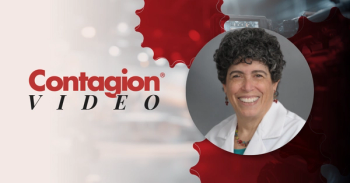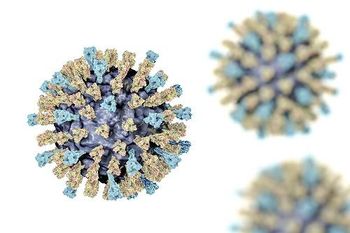
IDWeek 2019 News Network: How to Cut Down on ABSSSI Readmission Rates
Segment Description: George Sakoulas, MD, UC San Diego School of Medicine, discusses the issues involved with treating acute bacterial skin and skin structure infections, including cutting down on readmission rates and how site of care affects treatment costs.
George Sakoulas, MD: With [acute bacterial skin and skin structure infections (ABSSSI)], readmission rates are a big problem, largely driven by the fact that a lot of ABSSSI is caused by [Staphylococcus aureus], patients with [Staphylococcus aureus] colonization, particularly some of these community acquired MRSA strains that have virulence factors that mediate, reinfection can be a problem. So in other words, you've done all the right things, you treated the patient with their appropriate duration of treatment, but then by merely the fact that they’re colonized, they, get another infection at a different location within a week, or a month, or a couple of months. We see these patients all the time.
First, recognizing the possibility this could be Staphylococcus colonization, you know, with second, third occurrence, you implement not just a treatment program for that particular infection, but perhaps also a decolonization paradigm keeping in mind things like washing with chlorhexidine, either daily or several times a week, bleach baths for a few weeks after infection to see if that is enough to break the cycle of reinfection. Other options that we've done for patients is taken the paradigm of how dermatologists treat acne, where tetracyclines are given for a prolonged period of time. So we sometimes will give patients minocycline for a month and hopefully that gives us a durable decolonization and a durable response, Mupirocin is another decolonizing agent.
So those types of things: keeping in mind that [Staphylococcus aureus] colonization and addressing the colonization factor is an important aspect of preventing recurrences and keeping in mind that fomites at home, other family members, even family pets can be reservoirs for recolonization and then keeping that in mind. Even if you go through a particular decolonization for a patient, recognizing the fact that you may have to take it into the immediate family household.
The site of care obviously has an impact on resources used and cost in treating ABSSSI. A patient comes to the emergency room, then there's a possibility that they're going to get admitted, when they get admitted to the hospital, chances are, they may get an antibiotic, vancomycin is one example, that is very cheap in and of itself, but by virtue of its very slow activity, and its overall poor anti-Staphylococcus activity makes the patient better but it takes a while to do so. And so once you've crossed that barrier into admitting someone to the hospital from an emergency room setting, that sets up a hospitalization frequently four or five days long, using medications that are cheap to acquire, but slowly act, it then leads to hospital stays that perhaps could be shortened up by using alternative agents that are faster.
Sometimes if you can avoid patients going to the hospital for the emergency room, you can get diverted with either an oral agent if they're not that ill, or perhaps one of those one-time doses like dalbavancin that can be dosed once and outpatient, it's an investment in drug cost up-front but at the end of the day might be overall cheaper than a 5 to 6 day hospitalization to get a drug like vancomycin. So, cost of care again, that's one of the challenges in treating ABSSSI. What you don't like seeing happening is what I see sometimes in urgent care settings where physicians will see a patient having to come back and get a medication like vancomycin once daily, or some other medication that is sub-optimally dosed, just to go back and forth from an urgent care setting to avoid the hospital stay. Many times those things backfire and the patient winds up just lingering and not getting better, ultimately admitted, and it just adds to the prolonged care of that patient.
Newsletter
Stay ahead of emerging infectious disease threats with expert insights and breaking research. Subscribe now to get updates delivered straight to your inbox.

































































































































